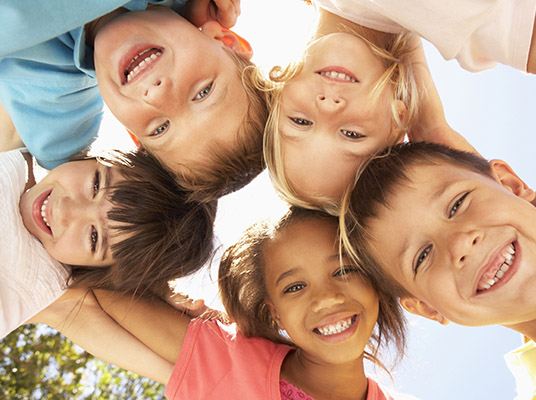
The first day of kindergarten is a significant milestone in a child’s life, marking the beginning of their formal education journey. Parents and children may feel excitement, anticipation, and anxiety as they prepare to embark on this new stage. It’s essential for both parties to understand what to expect on that first day and learn ways to make the transition as smooth as possible.
Various aspects of the first day of kindergarten should be taken into consideration. This includes the importance of social skills, early friendships, and preparing for new routines. By understanding these factors, children and their parents can feel more at ease and confident as they approach this exciting milestone.
Key Takeaways
- Familiarize yourself with the kindergarten environment and routines to lessen anxiety
- Encourage the development of social skills for early friendships among classmates
- Prepare a list of essential supplies for a smooth start in the kindergarten classroom
What to Expect
The first day of kindergarten can be an exciting and sometimes challenging time for children and parents. Knowing what to expect and how to help your child prepare for this significant milestone in their life is essential.
Preparing for the first day of kindergarten typically starts with a school tour. This is an opportunity for the child and their parents to visit the school, meet the teacher, and get a sense of the new environment. A school tour helps familiarize the child with the school’s layout, reducing anxiety and uncertainty on the first day.
It is essential to follow a routine to ease the transition. Start by establishing a consistent morning routine in the weeks leading up to the first day of school. This could include waking up at a specific time, having breakfast, and getting dressed for school. It also helps to prepare your child’s school supplies, lunch, and backpack ahead of time.
The first day at a new school can be filled with various activities and experiences. It might involve learning new school rules, making friends, participating in group activities, and navigating the school. Kindergarten children can expect guidance from teachers and staff to understand their new environment and daily schedule.
Some children might experience separation anxiety when leaving their parents on their first day at kindergarten. It is essential to handle this situation with reassurance and patience. Parents should be positive and encouraging, discussing the exciting activities and experiences the child will enjoy at school.
In summary, preparing for the first day of kindergarten involves visiting the school through a tour, establishing routines, and managing separation anxiety. Keep expectations realistic and focus on supporting your child throughout the transition to their new school setting. This will help them have a successful and enjoyable start to their kindergarten journey.
Preparation Before the First Day
Parents Preparation
As parents, it is essential to be well-prepared for your child’s first day of kindergarten. Begin by communicating with your child’s teacher(s) to learn about their expectations and specific requirements. It’s essential to remain confident and knowledgeable, setting a positive tone for your child.
Purchase a backpack for your child that is comfortable and age-appropriate, ensuring it has enough space for essential supplies. Speaking of supplies, create a list and acquire all necessary items before the first day of school. These may include pencils, crayons, glue sticks, and a folder or notebook.
Take time to read aloud with your child, especially books about the first day of school. This will help familiarize them with the concept and ease any potential fears. Additionally, reading together helps to build language and listening skills.
Child Preparation
Preparing your child for the first day of kindergarten involves both practical and emotional support. Encourage independence by teaching them how to take care of their belongings, pack their backpack, and dress themselves. Also, practice essential self-care routines like hand washing and bathroom etiquette.
Expose your child to social situations, like playdates or small group activities, to help them develop communication and cooperation skills. During these interactions, reinforce the importance of sharing, taking turns, and respecting others.
Preparing parents and children will make the transition to kindergarten smoother, resulting in a positive and productive first day.
Social Skills and Friendships
Learning to Share
On the first day of kindergarten, children might experience some jitters, but this is also an opportunity to practice social skills and develop friendships. One important aspect of socializing is learning how to share. Sharing helps children build trust with their peers and promotes a sense of community in the classroom. Children need to learn and practice sharing as they develop social skills.
To help children with sharing, teachers can implement activities that encourage teamwork and cooperation. For example, they can use group projects where children must work together and share materials. Another activity could be playing games that require children to take turns, reinforcing the importance of sharing and group participation.
Developing Friendships
Developing friendships has a significant impact on a child’s mental health and social growth. Studies have shown that childhood friendships play a crucial role in emotional, cognitive, and communicative development.
On the first day of kindergarten, children can start building friendships by participating in activities that promote interaction and collaboration. Teachers can implement specific exercises designed to strengthen social skills, such as greeting circles where students practice warm and inviting greetings with their peers. This allows them to break the ice and connect with each other on the very first day.
Developing friendships and social skills in kindergarten will ultimately help children cope with first day jitters and set the foundation for a successful school experience. By creating an environment that promotes sharing, cooperation, and open communication, teachers can give children the tools they need to thrive in their school journey.
